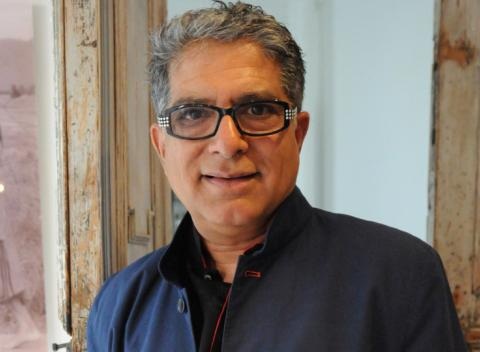
In a live broadcast last week, carried by HuffPost Live, Deepak Chopra, a self-described spiritual leader, called atheism “the adolescence of spiritual seeking” in comments aimed at scientist and atheist Richard Dawkins.
He also maintained that Dawkins behaved as an “adolescent” in debates regarding spiritual matters. Chopra’s new book, The Future of God, was one of the topics of discussion during Tuesday’s interview with HuffPost Live host Caroline Modarressy-Tehrani.
After opening the interview by reading a short excerpt from The Future of God wherein Chopra wrote of how Dawkins “has alienated those who share his atheism,” with his arrogance and supposition that “no logic works but his,” the host began by asking Chopra why Dawkins’ views and “militant atheism” were threatening to him. The self-proclaimed spiritual leader responded that Dawkins’ attitude and arrogance were antagonizing to others, referring especially to Dawkins describing himself as a militant atheist and calling others “stupid” for not having the same belief system.
Does @RichardDawkins even understand what naive realism means ? http://t.co/P8vsd37DL4
— Deepak Chopra (@DeepakChopra) November 12, 2014
Chopra went on to say that he thought Dawkins was actually a fundamentalist, although “on the other side of the divide” from traditional religious fundamentalists. Chopra insisted that Dawkins’ reality was an empirical one, where things, which could be seen, were real, but those, which were intangible, such as thoughts, ideas, emotions, and desires, were not. Chopra went on to state that Dawkins believes in a version of reality, which suffered from naiveté. He also stated that without discussing consciousness, the rationality to which Dawkins subscribes is “bamboozled by the superstition of materialism.”
Chopra characterized Dawkins’ atheism as immature in the realm of spiritual understanding because he had not grown past the doubt of the existence of a god. Chopra concluded with the warning that everything, even experiences concerning the material world, must be questioned.
